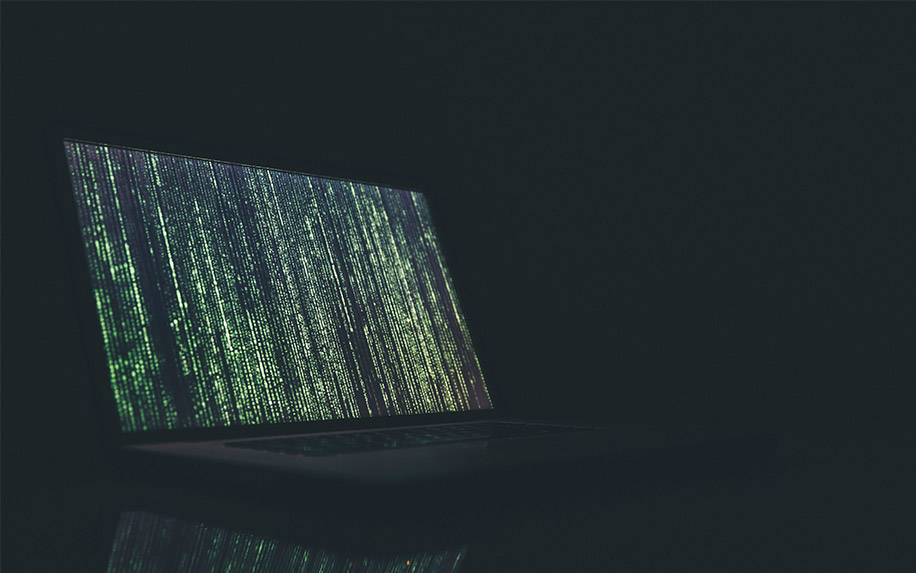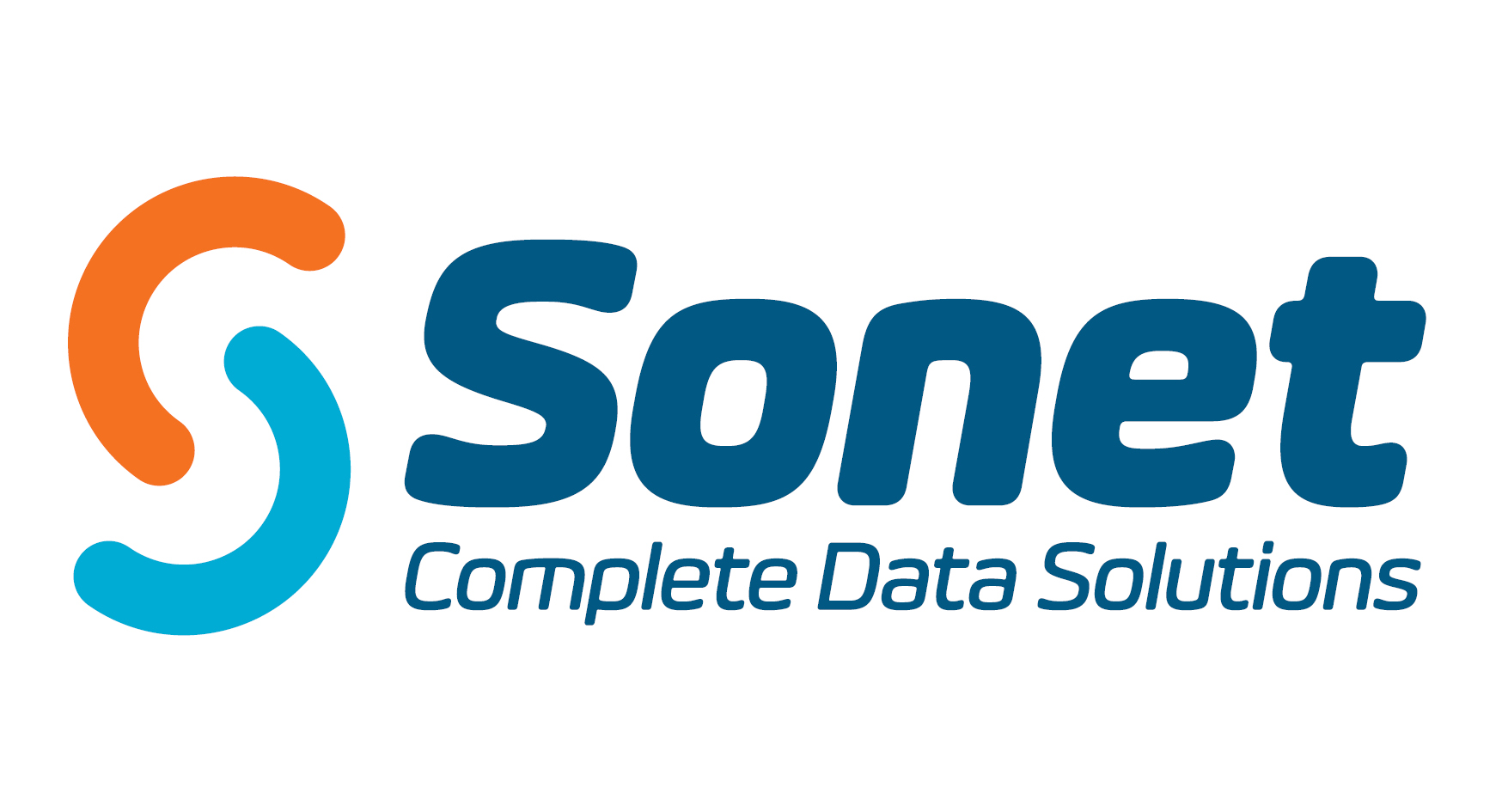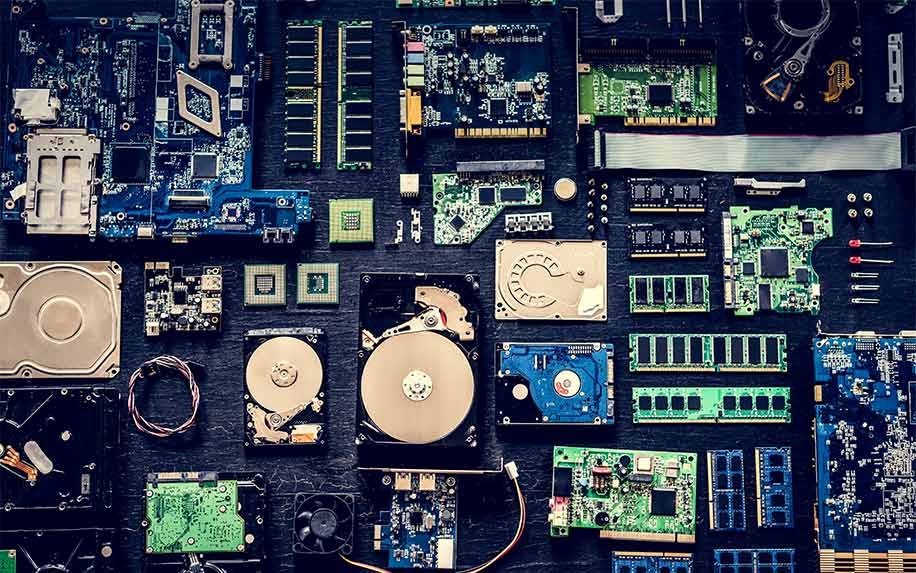Technology moves quickly. Inevitably, there comes a time when you need to dispose of your old office equipment, but this needs to be done safely and responsibly. Companies that are registered to collect, transport and process end of use electronic equipment can help you do this.
In the UK alone, around 13kg of old electronics are thrown out for every person annually. Trends are similar across other developed countries, and the figures are rising. That’s a lot of technology which could potentially end up in the landfill.
To combat this problem, EU lawmakers created the Waste Electric and Electronic Equipment (WEEE) Regulations, which came into effect in 2014. When combined with the requirements for businesses under the GDPR, this creates a wide range of responsibilities for businesses.
What is WEEE Recycling?
As noted in the name of the Regulation, WEEE stands for waste electric and electronic equipment. As a rule of thumb, this can be just about anything which requires a battery or mains power.
In other words, it can be anything from household appliances to medical equipment. For most businesses though, the most important WEEE category is computer equipment including laptops, hard drives, monitors, and servers.
Specialist WEEE recycling companies are tasked with safely disposing of hazardous materials, extracting recyclables and forensic data wiping of any and all storage media. This last point is crucial for modern businesses, as most companies now store large amounts of employee and customer data.
As such, failure to properly dispose of WEEE equipment can make businesses liable for legal damages, as well as reputational damage under both environmental and data protection law.
To avoid these, let’s take a look at what’s involved in WEEE recycling.
Requirements for WEEE Recycling
For computer equipment, WEEE recycling is a difficult process, as companies are required to ensure that all data on these devices is irretrievably wiped or destroyed, while the devices themselves are recycled to the relevant environmental standards.
Each of these is a highly technical and specialised regulatory field in its own right.
To help understand the obligations of businesses when it comes to disposing of WEEE materials, let’s take a look at each of these two sets of requirements in turn.
Data Protection Requirements
Secure data destruction and data device shredding is equally as important as the physical disposal of WEEE devices. In terms of the impact of non-compliance on businesses, the fines on offer for GDPR breaches can be as high as €20 million.
Breaches can occur where a personal data is transferred to a third party unwittingly after a data storage device has reached the end of its service life with its original owners.

Data Sanitisation
Helpfully, the National Cyber Security Centre (NCSC) offers guidance on how organisations can meet their obligations by using effective data sanitisation techniques. Here, data sanitisation is the process of ensuring that data is completely irretrievable.
In the case of WEEE recycling, data sanitisation most commonly uses destruction techniques, where storage media are destroyed entirely, while the attached devices are recycled or reused.
Additionally, it’s recommended that organisations build the cost of data sanitisation into their procurement decisions, as well as creating an in-house data destruction policy, to keep a track record of the usage of all data storage devices.
Forensic Data Wiping
Some data deletion processes are more permanent than others. Most DIY data destruction techniques fail to render the contents of a drive completely irretrievable. Where improper techniques are used, content can be recovered through processes known as data forensics.
Forensic data wiping is a set of erasure techniques which prevents this.
This is crucial for WEEE recycling where the organisation would prefer for storage media to be reusable, either for in-house purposes or resale. Forensic data wiping uses powerful electromagnets, or specialist software to irretrievably erase drive contents.
This eliminates the possibility of a data breach after the end of the service life of a storage device.
Compliance with Industry Codes
There are a number of important regulatory considerations when it comes to disposing of old storage media in a data secure manner. These come from a number of sources, including governmental bodies.
Specialist data destruction companies should be in full compliance with NCSC guidance when carrying out destruction and sanitisation on all forms of data storage devices in the UK.
Additionally, the British government’s Communications-Electronics Security Group (CESG) and Centre for the Protection of National Infrastructure (CPNI) create additional requirements for the destruction and sanitisation of storage media used in the public sector.
Businesses offering WEEE recycling services should be fully abreast of each of these regulations in order to ensure full compliance with the appropriate data protection standards for each of their clients.
Detailed certificates of destruction should also be provided for the organisation’s own records.
Environmental Protection
The other main purpose of specialist WEEE recycling is to ensure that environmental protection and safety standards are met. While the WEEE Regulations create a number of obligations for businesses, they also offer certain opportunities.
Let’s examine how this works in a little bit more detail.
Corporate Obligations
The first goal of WEEE recycling is to ensure that harmful chemicals which make up modern electronic equipment do not cause environmental damage. In keeping with this, organisations are responsible for ensuring that their equipment is destroyed in a manner which prevents this.
Specifically, harmful materials like lead, mercury and plastics can cause massive damage to local ecosystems when they end up in a landfill. The role of WEEE recycling services is to prevent this from happening.

Electrical and electronic equipment also typically includes materials which are not harmful in and of themselves, but still require a great deal of energy to extract and produce. These include things like gold, silver, and copper.
WEEE recycling helps to prevent unnecessary energy usage by recovering these materials from old devices, so that they can be reused.
Environmental Reputation
Modern consumers are more environmentally conscious than ever before. This means that WEEE recycling can prevent great opportunities for brands. Essentially, full compliance with WEEE regulations is a great way to show off your green credentials to your customers.
However, the flip side of this is arguably more important. That is, a great deal of reputational damage can also be caused by failure to properly comply with relevant environmental regulations.
In addition to negative PR, the reputational damage can often lead to concrete drops in business’ revenues. The best way to avoid this is to use a specialist WEEE recycling service.
Get Paid to Recycle Used IT Equipment
Finally, Depending on the age and specification of the equipment it may be possible for a business to recycle electronic devices, destroy digital data and receive a rebate. Data destruction and WEEE collection companies often offer an upfront payment for used equipment or cash back upon resale. Just because one user deems a device to be end of use does not mean that it has come to the end of its useable life.
The raw materials may have value and be used to manufacture new products, or simply refurbish the entire device for reuse.
In any case it is still advisable for organisations to seek out secure data sanitisation services before allowing data bearing devices to be removed from company premises. Being paid to do this could be the incentive needed for organisations to refresh their IT suite.
How to Source WEEE Recycling Services
As noted, WEEE recycling is a complex and specialist service. Part of the reason for this is that businesses are required to comply with a range of technical regulations when disposing of their old electronics and electrical equipment.
These include data protection concerns, as well as environmental protection.
As such, when sourcing WEEE recycling services, it’s vital to seek out experienced professionals, who are able to operate in full compliance with all of the appropriate legislation and guidance.
To discuss the need for WEEE recycling in your business, speak to Sonet’s expert team today.





